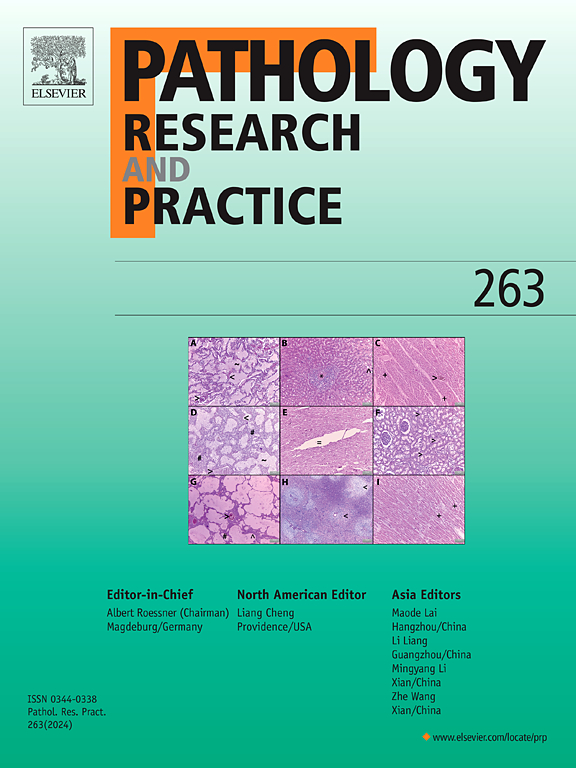Schizandrin A promotes apoptosis in prostate cancer by inducing ROS-mediated endoplasmic reticulum stress and JNK MAPK signaling activation
IF 2.9
4区 医学
Q2 PATHOLOGY
引用次数: 0
Abstract
Background
Prostate cancer (PCa) is the most common malignant tumor in males with limited therapies. Schizandrin A (SchA) is a biologically active lignan isolated from the fruit of Schisandra chinensis. This research aimed to evaluate the roles and mechanisms of SchA in the progression of PCa.
Methods
PCa cells (VCap and DU145) treated with or without SchA were subjected to MTT assays, colony formation assays, DCFH-DA assays, western blotting, TUNEL staining, and flow cytometry analyses of cell cycle, cell apoptosis, and JC-1. Tumor xenograft model was established in nude mice to assess the in vivo effect of SchA.
Results
SchA suppressed cell proliferation and induced cell cycle arrest at G2/M and apoptosis in PCa cells. Additionally, SchA enhanced ROS generation and endoplasmic reticulum stress and activated JNK signaling to induce PCa apoptosis. Furthermore, SchA suppressed tumor growth in vivo.
Conclusion
SchA induces cell cycle arrest and apoptosis in PCa cells by activating ROS-mediated ER stress and JNK MAPK signaling.
五味子异黄酮 A 通过诱导 ROS 介导的内质网应激和 JNK MAPK 信号激活促进前列腺癌细胞凋亡
本文章由计算机程序翻译,如有差异,请以英文原文为准。
求助全文
约1分钟内获得全文
求助全文
来源期刊
CiteScore
5.00
自引率
3.60%
发文量
405
审稿时长
24 days
期刊介绍:
Pathology, Research and Practice provides accessible coverage of the most recent developments across the entire field of pathology: Reviews focus on recent progress in pathology, while Comments look at interesting current problems and at hypotheses for future developments in pathology. Original Papers present novel findings on all aspects of general, anatomic and molecular pathology. Rapid Communications inform readers on preliminary findings that may be relevant for further studies and need to be communicated quickly. Teaching Cases look at new aspects or special diagnostic problems of diseases and at case reports relevant for the pathologist''s practice.

 求助内容:
求助内容: 应助结果提醒方式:
应助结果提醒方式:


